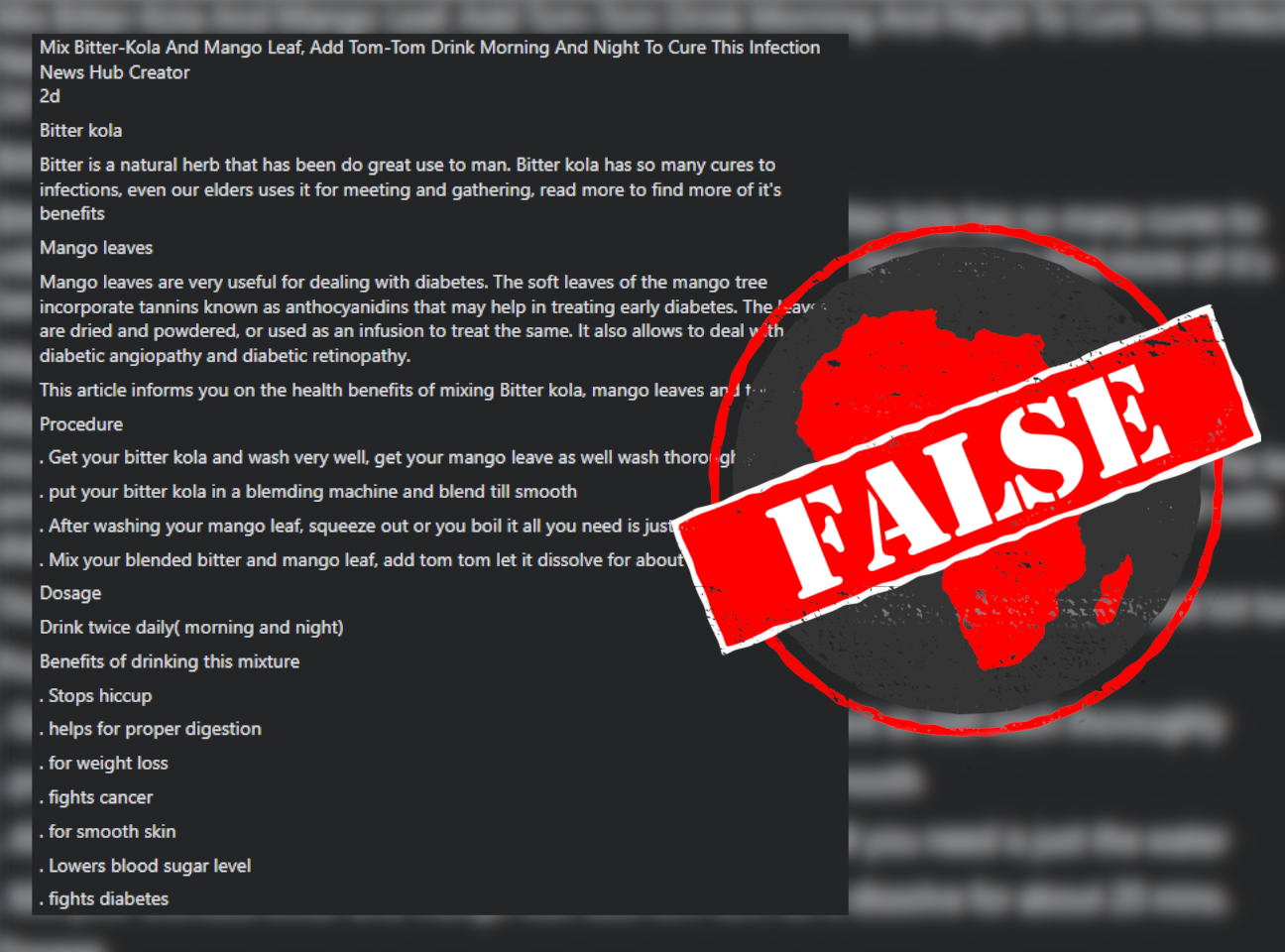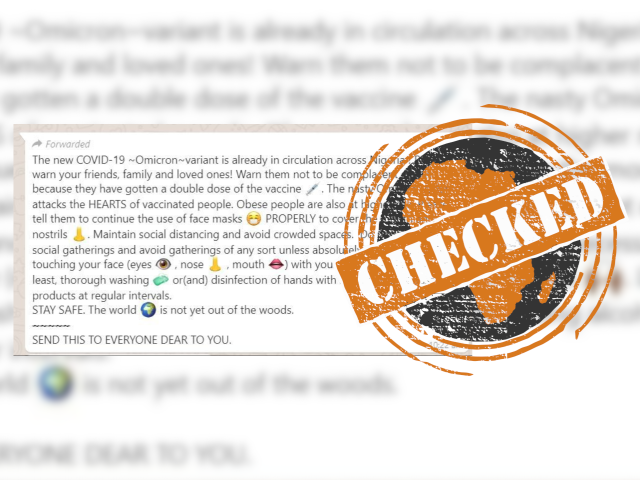IN SHORT: A Facebook post claims that a mixture of bitter kola, mango leaves and candy can “fight” cancer, diabetes and other diseases. But beware, this is false.
According to a post on Facebook, drinking a mixture of bitter kola, mango leaf and a popular Nigerian candy will “fight” a wide variety of conditions, including cancer and diabetes, and lower blood sugar.
The post lists the benefits of taking the mixture and gives instructions on how to prepare it. It instructs readers to blend the bitter kola, boil up the mango leaf, and then dissolve Tom Tom, a strong menthol lozenge, into the concoction, which should be drunk twice a day.
We found the same claim posted here, here and here.
But could this mixture fight cancer, diabetes and other diseases? We checked.

What are mango leaves and bitter kola?
The mango, or Mangifera indica, is an evergreen tree in the Anacardiaceae family. The fruit of the tree, rather than the leaves, is most commonly consumed. It is indigenous to southern Asia but is also grown across East and West Africa and in parts of the Americas.
Bitter kola, or Garcinia Kola, also known as bitter cola, is an African plant widely used in folk medicine. Although all parts of the Bitter kola plant are used in traditional African medicine, the seeds are among those most regularly consumed.
Leading cause of death globally
Cancer is a large group of diseases where abnormal cells in the body grow uncontrollably and destroy healthy surrounding tissue. According to the World Health Organization, cancer is a global leading cause of death, causing nearly 10 million deaths annually.
There are many different types of cancer and they are normally named after the cell type where the cancer begins. For example, lung cancer begins in the lungs and cervical cancer begins in the cells of the cervix. Some of the most common parts of the body affected by cancer include the breast, lung, prostate, colon, rectum and blood.
But as Africa Check has explained previously, while there are a variety of treatment options for cancer, “there is no one-size-fits-all cure for all cancer types”.
Diabetes is a chronic condition that causes high blood sugar levels because of the way the body responds to insulin, a hormone that controls blood sugar levels. Uncontrolled diabetes can lead to serious health problems.
Type 2 is the most common of diabetes, though there are several other types. According to the WHO, an estimated 2 million people die from diabetes and related diseases every year around the world.
Like cancer, there is no definitive cure for diabetes. The condition is treated with insulin. Exercise, weight control and healthy eating also help.
There has been some research into the medicinal benefits of bitter kola and mango leaves. But we found no mention of any treatment for cancer or diabetes that included menthol-flavoured candy such as Tom-Tom.
‘Ignore posts, seek medical help for life-threatening diseases’
Africa Check spoke with Edwin Nwobodo, a professor of natural products and human physiology at the College of Health Sciences, Nnamdi Azikiwe University, Awka, Nigeria.
He said there was no scientific evidence for the claim that mixing bitter kola, mango leaves and candy could fight cancer or diabetes.
“There’s no real scientific research that has proven such a mixture to solve cancer, diabetes and other medical problems”.
“Also, there are many types of cancer and each has its pathology and causes, so there is no one cure”.
“This claim is far from being proven and until it is subjected to scientific protocols, it is categorised under the realm of folklore,” said Nwobodo.
Republish our content for free
For publishers: what to do if your post is rated false
A fact-checker has rated your Facebook or Instagram post as “false”, “altered”, “partly false” or “missing context”. This could have serious consequences. What do you do?
Click on our guide for the steps you should follow.
Publishers guideAfrica Check teams up with Facebook
Africa Check is a partner in Meta's third-party fact-checking programme to help stop the spread of false information on social media.
The content we rate as “false” will be downgraded on Facebook and Instagram. This means fewer people will see it.
You can also help identify false information on Facebook. This guide explains how.





Add new comment